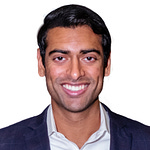Sometimes I think of Cem (pronounced as “Gem”) as a twenty-first century alchemist. He is a pharmacist, after all, with a profound understanding of what makes things work in global businesses and an insatiable curiosity about human nature and psychology. The number of his direct reports that have been promoted are evidence of his ability to joyfully coach and develop people.
He shared an observation with me in the latest episode of Lori On Leadership that I found indicative of his own maturity as a leader.
“In the past, leadership was about power, performance, and collecting experience. Now, with age, leadership becomes less about me and more about others.”
At other times, I think of Cem as the Anthony Bourdain of leaders. Here’s a man who speaks five languages, thoroughly enjoys being exposed to new cultures, connects with people from diverse backgrounds, and, in his “down time”, tests his physical and mental capabilities with extreme activities in off-the-beaten-path places.
It’s no surprise then that Cem is the kind of executive who naturally takes charge in demanding situations and who gravitates toward the challenging international assignments others avoid. This born adventurer has worked in five countries in the last 15 years and travelled to over 90. Whenever I talk with Cem (in English, of course), he’ll have an intriguing new leadership insight or personal adventure to share. In my podcast, we talked about: cultural differences between America, Denmark and the Middle East; how he ended up spending an evening, unknowingly, with Japan’s most notorious yakuza (a member of that country’s most sophisticated, wealthy Mafia-like criminal organization); and what it was like traveling in Siberia with his well-known chef friend, Arda Turkmen, at the beginning of the Russo-Ukrainian War.
“I have a brand that’s built around being willing to take discomfort and maybe endure certain things that some other people may be not willing to endure.”
After serving as a reserve officer in the Turkish Armed Forces, Cem worked as a product manager for Bilim Pharmaceuticals in Istanbul. From there, he joined global healthcare company Novo Nordisk, the top insulin supplier in the world and the global leader in diabetes and obesity. During the 17-years he has worked for the company so far, he has risen through the ranks from diabetes product manager and marketing director to various country GM and corporate VP roles. In heading up various affiliates and functions, he has been based in Denmark, Turkey, Jordan, Iran, and the United Arab Emirates. Today, he is based in Sydney, Australia as Corporate VP and GM of Novo Nordic’s Oceania affiliate, where he is responsible for US$325M in annual revenue and a 250-person workforce.
Key Takeaways
When I caught up with Cem in Sydney, he shared with me that, since the COVID pandemic began, he had been living with the question, “What really matters?”. I’ve extracted the following highlights from that discussion for other executives who may be wondering about that question in the context of their leadership too.
Commit to becoming a better human being. This is the biggest work you will need to do to lead, influence or inspire other people. Find out your self-limiting biases and behaviors. You need to want to see them: you must be open to see them. Some that helped you succeed in the past may no longer serve you. Get rid of the ones that are actually blocking your potential as a human being and a leader now.
Go where nobody goes. Explore the world’s diversity. Be curious about other people’s perspectives. Travel widely. Learn how to fit in. Get to feel like you are a part of the world and that you are safe in it.
Risk having a few bad adventures to have a really great one. Be willing to put yourself out there and go places that other people might not want to go. Sometimes you’ll mess up. But at least you’ll have a chance of having a remarkable experience that you can tell other people about for years.
Remember the egalitarian fundamentals of leadership. Rather than being a paternalistic figure with all the power who supposedly knows everything, can never fail, and can never make a mistake, be open, curious, and vulnerable. Come from you don’t know everything. Pay attention to what everyone says. Don’t assume you are better. Treat each person as an individual who is as privileged as everyone else.
Admit you can be wrong. You can know certain things, but you can’t know everything. Be genuinely open about this and help people relax around you.
Prioritize people. Do one-on-ones when you step into a new role. Meet with everyone for at least 30 minutes. Your job during that time is to listen. Those minutes will show people you value them, you value what they have to say, and you prioritize them over, perhaps, other things they think you “should” be doing.
Trust people. Have the courage to trust and you’ll become a better leader and a better person. If you don’t trust someone, make the effort to figure out why. If you find yourself only thinking of the downside, ask yourself why you’re not thinking about the upside and what could happen if you really trusted them. If you trust someone and they screw you, don’t look back and say, “I wish I trusted that person less.” Instead, commit to learning something and use that failure to grow.
Don’t mandate people work in the office full-time. Give them the autonomy to choose when to come into the office. Let them decide. Then they will come in because they want to come in, not because they’re complying with a rule. They’ll come into the office because it’s an engaging, inspiring place to be. Those who are motivated will deliver results wherever they are—and those who aren’t motivated, no matter where they are, won’t deliver. As Adam Grant says, "What matters is the value people create, not the place they inhabit.”
More About the Guest
Cem Ozenc
“New Leadership for Novo Nordisk”, MedNews®, June 17, 2022












